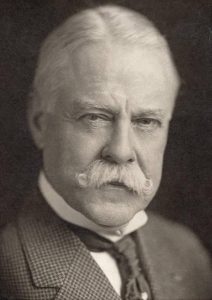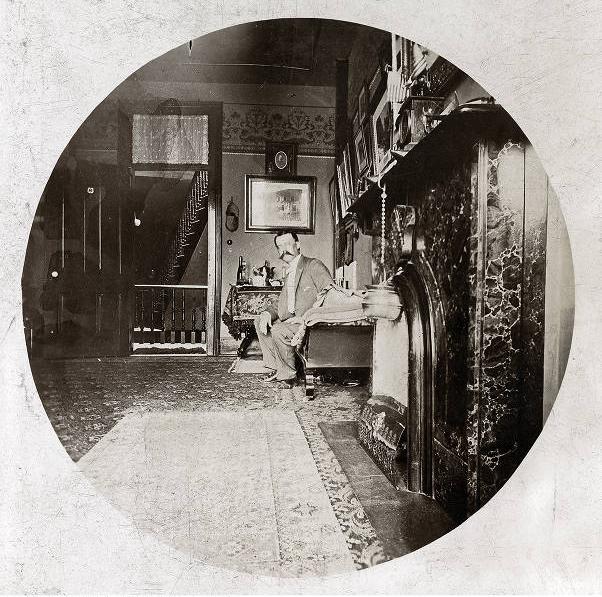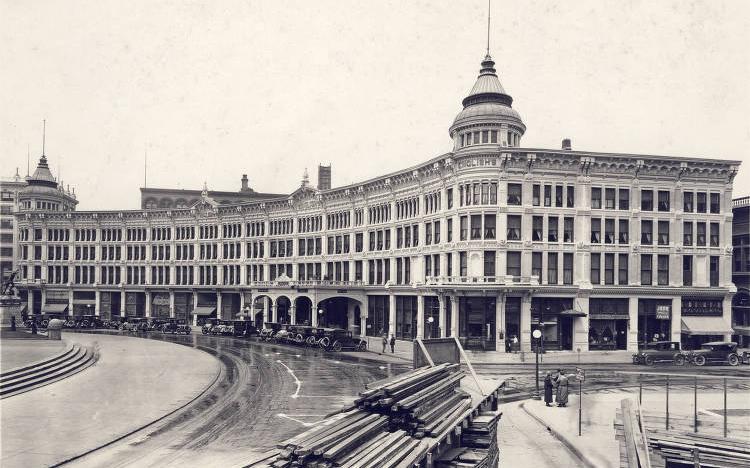
Photo info ...
Credit: Indiana Historical SocietyView Source
(Nov. 3, 1850-Apr. 29, 1926). The only son of , English spent his early life in Lexington, Indiana, and moved to Indianapolis with his parents in 1865. An 1873 graduate of North Western Christian (), English briefly practiced law before becoming involved in local politics. He represented Marion and Shelby counties in the Indiana House of Representatives, 1879-1880, and authored legislation limiting the indebtedness of Marion County.

Beginning in 1880, English managed the English Opera House (and later Hotel) (see ), which his father had built on the Circle. After serving in the U.S. House of Representatives, 1884-1885, he came home and reentered local politics. By 1892, English returned to national politics, serving as vice president of the National Association of Democratic Clubs and as a delegate to the Democratic national convention where he supported Grover Cleveland’s renomination. He managed Indiana Governor Claude Matthews’ bid for the Democratic presidential nomination in 1896. English later abandoned the party, supporting the and its position on protective tariffs.
After his father’s death in 1896, English remodeled and expanded the English Theater, completed in 1897. When the Spanish-American War began in 1898, he declined a presidential appointment as a U.S. Army paymaster and volunteered as an aide to Maj. Gen. Joseph Wheeler in Cuba. Crushed beneath his wounded horse, English survived and returned home, where he helped found the United Spanish War Veterans, serving as its first commander-in-chief, 1904-1905. In 1900, he also organized the William E. English Camp No. 61, made up of Black veterans of that war.

Upon returning to Indianapolis, English reentered politics, serving as president of the city’s Board of Park Commissioners (1898-1900) and Safety (1904-1906). In 1904, he campaigned throughout Indiana for the Theodore Roosevelt-Charles W. Fairbanks presidential ticket (see ). Later, he represented Hamilton, Hendricks, and Marion counties in the Indiana Senate, 1917-1923, and Johnson and Marion counties from 1923 until his death.
Active in numerous local organizations, English was a member of the Indiana Conservatory of the and author of (1895) and (1901). English also served as an officer of the Indianapolis , the , and the .

Help improve this entry
Contribute information, offer corrections, suggest images.
You can also recommend new entries related to this topic.